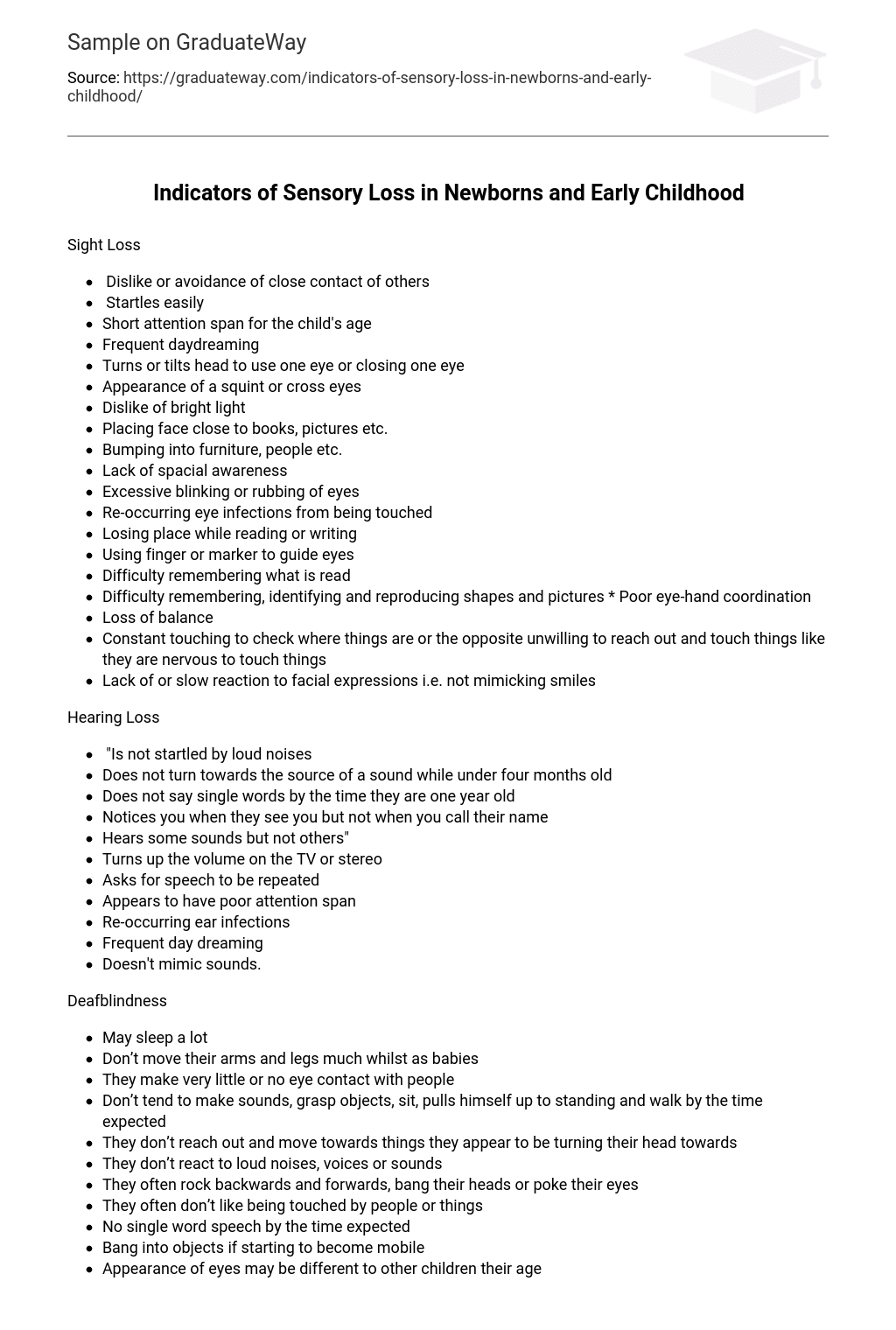Sight Loss
- Dislike or avoidance of close contact of others
- Startles easily
- Short attention span for the child’s age
- Frequent daydreaming
- Turns or tilts head to use one eye or closing one eye
- Appearance of a squint or cross eyes
- Dislike of bright light
- Placing face close to books, pictures etc.
- Bumping into furniture, people etc.
- Lack of spacial awareness
- Excessive blinking or rubbing of eyes
- Re-occurring eye infections from being touched
- Losing place while reading or writing
- Using finger or marker to guide eyes
- Difficulty remembering what is read
- Difficulty remembering, identifying and reproducing shapes and pictures * Poor eye-hand coordination
- Loss of balance
- Constant touching to check where things are or the opposite unwilling to reach out and touch things like they are nervous to touch things
- Lack of or slow reaction to facial expressions i.e. not mimicking smiles
Hearing Loss
- “Is not startled by loud noises
- Does not turn towards the source of a sound while under four months old
- Does not say single words by the time they are one year old
- Notices you when they see you but not when you call their name
- Hears some sounds but not others”
- Turns up the volume on the TV or stereo
- Asks for speech to be repeated
- Appears to have poor attention span
- Re-occurring ear infections
- Frequent day dreaming
- Doesn’t mimic sounds.
Deafblindness
- May sleep a lot
- Don’t move their arms and legs much whilst as babies
- They make very little or no eye contact with people
- Don’t tend to make sounds, grasp objects, sit, pulls himself up to standing and walk by the time expected
- They don’t reach out and move towards things they appear to be turning their head towards
- They don’t react to loud noises, voices or sounds
- They often rock backwards and forwards, bang their heads or poke their eyes
- They often don’t like being touched by people or things
- No single word speech by the time expected
- Bang into objects if starting to become mobile
- Appearance of eyes may be different to other children their age





